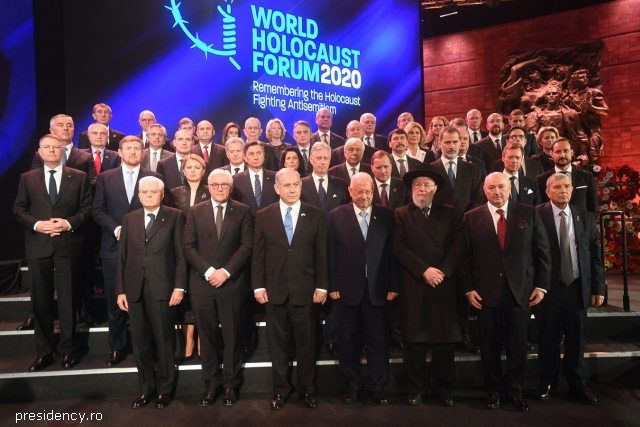Holocaust Remembrance
Romania joins the international community in commemorating the victims of the Holocaust.

Bogdan Matei, 27.01.2020, 13:50
75 years ago, towards the end of WWII, the last prisoners in the Auschwitz-Birkenau concentration camp, in the south of occupied Poland, were set free. Dubbed the most sinister factory of death, the camp had been especially built, back in 1940, to eliminate the real or imaginary enemies and had become an emblematic place for the implementation of the so-called final solution, by means of which Hitlers regime wanted to exterminate Jews in Europe.
According to statistics, within less than five years, more than one million people, mostly Jews, were killed at Auschwitz-Birkenau. In all, six million Jews died during the second world war, victims of Germany and its satellites. Several hundreds of thousands were from Romania. Some of them were deported to Transdniestr, in the east, by the pro-German government in Bucharest, headed by marshal Ion Antonescu. Others were sent straight to the Nazi extermination camps by Hungarian fascists, who had occupied part of Transylvania, in the north-east.
In Bucharest and other places across Romania, the victims of the Holocaust have been commemorated these days through various religious and secular ceremonies, symposiums, film galas and exhibitions. The Romanian prime-minister Ludovic Orban, who attended the ceremonies held at Auschwitz, has stated that such events are necessary exercises, meant to foster remembrance, compassion and keep memory alive. “75 years since the liberation of the Auschwitz-Birkenau concentration camp, the entire world stands against anti-Semitism, racism, xenophobia and intolerance”, Ludovic Orban has stated, also stressing that “Romania, in itself, and also as a member of the EU, promotes tolerance, non-discrimination and peace, and remains active in the process of preserving the memory of the Holocaust.”More than 200 Holocaust survivors from around the world joined political figures at the ceremonies held at the former Nazi camp.
Last week, president Klaus Iohannis was one of the almost 50 heads of state and government that participated in Israel in the Fifth World Holocaust Forum. He also held talks with his Israeli counterpart Reuven Rivlin, whom he assured that Romania would continue to support the preservation of the memory of the Holocaust, to fight anti-Semitism, prevent discrimination and any form of violence. Romanias participation in the event was part of a string of actions undertaken by the Romanian state to promote the European values, tolerance and the observance of the fundamental rights and freedoms, the Romanian Presidential Administration has said.






























